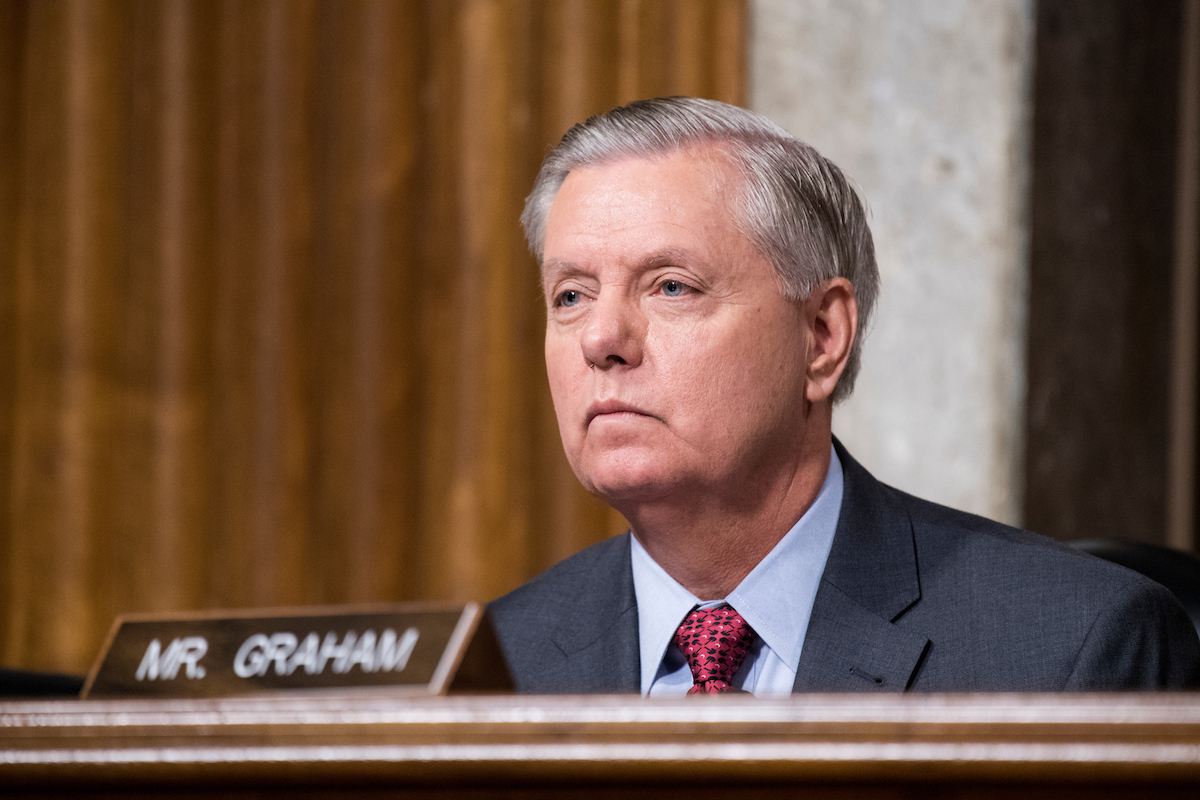Senators Cranky About Appropriations Process
Little appetite for another continuing resolution

“I will never vote for a CR again.”
That was all the normally talkative Sen. Lindsey Graham cared to say when asked about the prospect of completing his State-Foreign Operations appropriations bill this year, or, as has become custom, funding that part of the government through another continuing resolution. The South Carolina Republican wants to create a new account to help countries in Eastern Europe battle Russian propaganda, something that wouldn’t happen if spending is just put on auto-pilot through a CR.
But despite Graham’s wishes, much of the federal government may be headed toward further stopgap spending.
Appropriators were ready to go last November when the Trump transition team made it clear they wanted input on the way forward on fiscal 2017 spending. But House Speaker Paul D. Ryan put the kibosh on that when he announced a plan to move forward with a short-term continuing resolution during a conference meeting that Vice President Mike Pence attended after the election.
Graham wasn’t happy with the decision.
“We’ve got a lot of appointments to fill. The Senate’s going to be very, very busy,” he said at the time. “If we do a CR to March or April, then we’ll have to deal with that at the same time we’re trying to confirm his nominees.”
And that’s exactly what has transpired, with the other key items added to the agenda — the rollback of the 2010 health care law and the confirmation of appellate Judge Neil Gorsuch to the Supreme Court.
The April 28 deadline for funding the government falls at the end of Congress’ first week back in session after a scheduled two-week Easter recess, though the plan is for the Senate to be in town ahead of the holiday until Gorsuch is confirmed, whether that be sooner or later.
And the White House isn’t doing much to speed up the process.
Press Secretary Sean Spicer, himself a former Capitol Hill aide, said the administration wants to complete work on its fiscal 2018 budget blueprint before circling back on how to fund the government for the remainder of this fiscal year.
“They go hand-in-hand. You need to close our FY ’17, then our budget lays out where we want to go FY ’18,” Spicer said in response to a question from CQ Roll Call at last Friday’s White House press briefing. “And I think once we have a handle on FY ’18, we can start to backfill 2017.”
The House has begun the process of moving spending bills across the floor, and they may well pass more of them, but floor time in the Senate is already scarce.
Last Wednesday, House members voted 371-48 to pass and send to the Senate a fiscal 2017 Defense appropriations bill that was the result of bipartisan and bicameral negotiations among senior appropriators.
Senate Minority Whip Richard J. Durbin, the lead Democrat on the Senate’s Defense Appropriations Subcommittee, praised the bill, which he worked to draft.
“This bill shows that we can make smart reductions to underperforming programs at the Department of Defense, and invest the savings in what really matters: support for the women and men in the Armed Forces and their families, new equipment for our troops, and investments in future technologies, including medical research,” the Illinois lawmaker said. “I look forward to this bill being the beginning of a process to fund the entire federal government in a responsible and fair manner.”
But there were few signs of early progress on measures other than that Pentagon spending bill, which Durbin described last week as a measure that “could be an important vehicle to get a lot of things done” with its arrival from the House.
Sen. Dianne Feinstein, who has long traded the gavel of the Energy-Water subcommittee with her Republican colleague Lamar Alexander of Tennessee said last week she did not know how the fiscal 2017 process would advance.
“I keep in touch with Lamar, and so far, nothing. So I don’t know what it’s going to be, and it’s very frustrating,” the California Democrat.
In an ideal world, appropriators would already be looking to fiscal 2018. But with a new administration and with Office of Management and Budget Director Mick Mulvaney only recently being confirmed, it’s unlikely that would have commenced even if an omnibus spending bill had moved in December.
Sen. Lisa Murkowski, the chairwoman of the Interior-Environment subcommittee, said she met with her staff about fiscal 2017 appropriations for the part of the executive branch under her jurisdiction last Wednesday.
The Alaska Republican signaled she would be working as though an Interior bill might be able to advance.
“Every assumption is that we are going to be out there with our department and our subcommittee,” she said. “We’re going to be sitting down with folks in the next couple of weeks and walking through what we’ve got to walk through.”
Appropriators have been doing their best to solicit feedback from the Trump administration when possible, even for bills that are — if past practice holds — the most likely to be relegated to being handled through a full-year continuing resolution.
Take Rep. Tom Cole, the Oklahoma Republican who chairs the Labor-HHS-Education subcommittee. He said he has already talked about spending priorities with Health and Human Services Secretary Tom Price.
“It’s a two-way conversation. We very much want to know the things that are important to them, particularly Dr. Price, as we appropriate his budget,” Cole said. “We had a meeting before he was confirmed and went through some things that we thought were important and solicited his suggestions. So, I’m glad he’s there.”
John T. Bennett, Kerry Young and Kellie Mejdrich contributed to this report.





